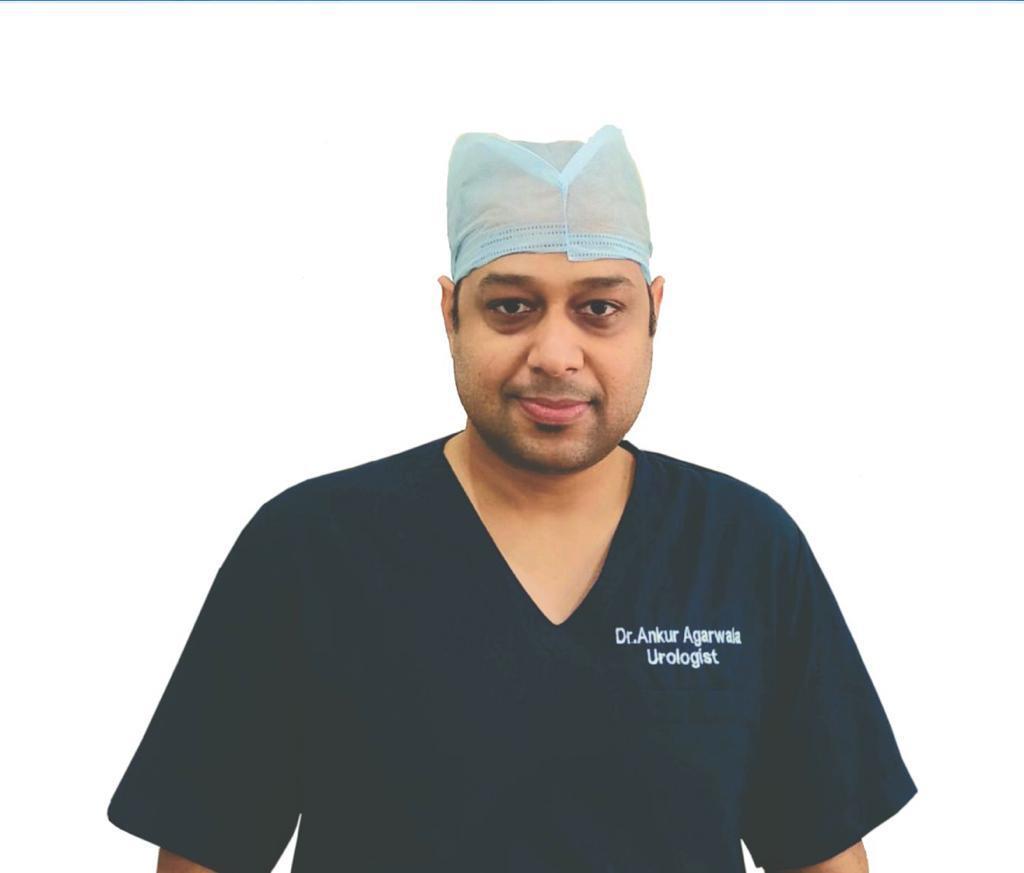Search Result: 10

Dr Amlan Jyoti Sarmah
MBBS,MS DNB,(Urology) IKDRC - Ahmedabad
Registration No
4651325
Language
English, অসমিয়া, বাংলা, हिंदी

12 years experience overall

Guwahati , Guwahati
MON, WED, FRI, SAT(09:00 AM-03:00 PM)

Dr Ankur Agarwala
MS,DNB (Urology), Renal Transplant (Medanta Medicity,Delhi NCR)
Registration No
2014145
Language
English, অসমিয়া, বাংলা, हिंदी

10 years experience overall

Guwahati , Guwahati
MON- SAT(10:00 AM-04:00 PM)

Dr Chandan Phukan
MBBS, MS (Surgery), Mch (Uro), FRCS (Uro)
Registration No
6077584
Language
English

10 years experience overall

Paschim Boragaon , Guwahati
MON- SAT, MON- SAT(09:00 AM-05:30 PM)

Dr Joy Narayan Chakraborty
MS,FRCS Edin,FACS,DNB(Surgery),DNB(Urology)
Registration No
1939319
Language
English

17 years experience overall

Paschim Boragaon , Guwahati
WED, WED(02:30 PM-05:00 PM)

Registration No
2677630
Language
English, বাংলা

25 years experience overall

Guwahati , Guwahati
MON- SAT(03:00 PM-05:00 PM)

Dr Sajidul Mazumdar
MBBS, M.S, Mch (Urology)
Registration No
4329108
Language
English, অসমিয়া, বাংলা, हिंदी

5 years experience overall

Paschim Boragaon , Guwahati
MON- SAT, MON- SAT(12:00 PM-05:00 PM)

Dr Syed Wasim Hasan
MBBS, MS, M.Ch.
Registration No
5159789
Language
English, हिंदी

9 years experience overall

Paschim Boragaon , Guwahati
MON, THU- SAT, MON, THU- SAT(11:00 AM-04:00 PM)

Dr Bikash Bawri
MS, MCH, FMAS
Registration No
4164602
Language
English, অসমিয়া, हिंदी

9 years experience overall

Zoo Road Guwahati , Guwahati
MON- SAT(10:00 AM-11:00 AM)

Dr Debango Sarma
MS, MCH (URO) AIIMS
Registration No
2039283
Language
English

10 years experience overall

Guwahati , Guwahati
SAT(03:00 PM-04:00 PM)

Dr Saumar Jyoti Barauh
MBBS, MS, MCh
Registration No
3979451
Language
English, অসমিয়া, বাংলা, हिंदी

35 years experience overall

Guwahati , Guwahati
MON- THU(10:30 AM-11:30 AM)
Frequently Asked Questions for s in
Coping with mental unrest related to erectile dysfunction involves addressing underlying psychological factors. This can be achieved through counselling, therapy, stress management techniques, and open communication with your partner. It is important to seek professional help to address any emotional or psychological issues contributing to the problem.
Yes, stress can contribute to erectile dysfunction. Mental stress and anxiety can interfere with the normal functioning of the body, including the ability to achieve and maintain an erection. Other factors, such as physical conditions, medications, or lifestyle choices can also affect erectile function. Managing stress through relaxation techniques or seeking professional help can help improve erectile function.
Bendable implants are semi-rigid rods that are surgically placed in the penis, allowing it to be bent into position for sexual activity. Inflatable implants, on the other hand, consist of inflatable cylinders that are surgically placed in the penis and can be inflated or deflated using a pump for erections.
Tests performed to confirm erectile dysfunction may include blood tests, ultrasound imaging, and overnight erection tests. Additional tests may be recommended based on specific cases.
While erectile dysfunction itself does not directly cause infertility, it can make it difficult to achieve pregnancy if it affects the ability to have sexual intercourse. However, there are various treatment options available to address this issue and improve fertility outcomes. Other factors, such as low sperm count or quality, hormonal imbalances, or genetic disorders can also cause infertility.
Erectile dysfunction may affect the ability to have sexual intercourse and ejaculate, but it does not necessarily mean that a man cannot father a child. In some cases, assisted reproductive techniques like intrauterine insemination or in vitro fertilization may be the solution.
In some cases of erectile dysfunction, ejaculation may be delayed or absent. However, it is important to note that erectile dysfunction and ejaculation are two separate processes, and one can occur without the other.
The duration of erectile dysfunction can vary from person to person. It can be temporary if it is caused by stress, anxiety, or temporary medical conditions. However, if it persists for a prolonged period, it is advisable to consult a specialist for further evaluation and treatment.
The common types of erectile dysfunction include organic/physical causes (due to underlying medical conditions), psychogenic causes (related to psychological factors), and mixed causes (a mix of both physical and psychological factors).
Erectile dysfunction can be caused by underlying medical conditions like diabetes, heart disease, high blood pressure, hormonal imbalances, psychological factors like stress or anxiety, side effects of certain medications, and lifestyle choices such as smoking or excessive alcohol consumption.
Yes, some treatment options for erectile dysfunction may have side effects. Common side effects of oral medications include headaches, flushing, indigestion, and nasal congestion. However, these side effects are usually mild and temporary. It is important to discuss potential side effects with your doctor before starting any treatment.
The common symptoms include difficulty achieving or sustaining an erection and reduced sexual desire. It may also include premature ejaculation. If you experience these symptoms frequently, it is advisable to consult a specialist.
Diagnosis of erectile dysfunction involves a physical examination, discussing medical history, and performing blood tests to check hormone levels. Additional tests like ultrasound or nocturnal penile tumescence test can also help determine the cause.
Treatment options include oral medications, such as sildenafil (Viagra), tadalafil (Cialis), and vardenafil (Levitra). Oral medications are not suitable for everyone and may interact with other drugs. Other options include vacuum erection devices, penile injections, testosterone replacement therapy, and surgical implants.
Urologists and Andrologists are the specialists who commonly treat erectile dysfunction. They have expertise in diagnosing and treating conditions related to the male reproductive system.
Other Specialities in Guwahati
- Best Urologist in Guwahati
- Best Pulmonologist in Guwahati
- Best General Physician in Guwahati
- Best Endocrinologist in Guwahati
- Best Cardiologist in Guwahati
- Best Oncologist in Guwahati
- Best Radiologist in Guwahati
- Best Orthopedics in Guwahati
- Best Hepatologist in Guwahati
- Best Gynecologist in Guwahati
- Best Dermatologist in Guwahati
- Best Gastroenterologist in Guwahati
- Best Psychologist in Guwahati
- Best Ent Specialist in Guwahati
- Best Nephrologist in Guwahati
- Best Rheumatologist in Guwahati
- Best Diabetologist in Guwahati
- Best Psychiatrist in Guwahati
- Best Neonatologist in Guwahati
- Best Dentist in Guwahati
- Best Dietitian in Guwahati
- Best Haematologist in Guwahati
- Best Pediatrics in Guwahati
- Best General Surgeon in Guwahati
Top Hospitals in India
- Hospitals in Ahmedabad
- Hospitals in Bangalore
- Hospitals in Bhubaneswar
- Hospitals in Bilaspur
- Hospitals in Chennai
- Hospitals in Delhi
- Hospitals in Guwahati
- Hospitals in Hyderabad
- Hospitals in Indore
- Hospitals in Kolkata
- Hospitals in Madurai
- Hospitals in Mumbai
- Hospitals in Mysore
- Hospitals in Nashik
- Hospitals in Noida
- Hospitals in Visakhapatnam
- Hospitals in Lucknow
- Hospitals in Bhopal
- Hospitals in Karur
- Hospitals in Kochi
- Hospitals in Nellore
- Hospitals in Trichy
- Hospitals in Kakinada
© Copyright 2024. Apollo Hospitals Group. All Rights Reserved.




 Call Now
Call Now







